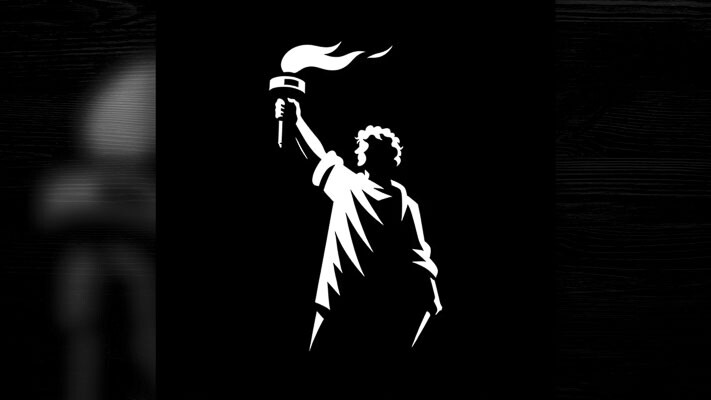
Washington state bill seeks to keep Trump off the 2024 ballot
Paul Guppy
Washington Policy Center
A bill introduced in Washington state by Rep. Kristine Reeves (D – Federal Way) seeks to keep Donald Trump’s name from appearing on the presidential ballot in November. The bill is HB 2150, introduced on Jan. 4 to create “processes regarding the disqualification of candidates who are ineligible for office.” The bill is backed by two left-leaning Democrat co-sponsors. No Republicans are supporting the bill.

The bill is less than five pages and gets right to the point. It would require that “the filing officer” – the clerks in Washington’s 39 counties and the Secretary of State – “…develop a standard oath for applicants to attest that they meet all eligibility requirements for office.”
This is strange because the state already has a well-established and non-controversial eligibility process. For example, candidates for state legislature must be 18 years old and a resident of the district they seek to represent. Candidates for federal office must be U.S. citizens, meet minimum age requirements and, if running for Congress, be a resident of the state. That’s it. These very minimal requirements mean that voters have maximum choice.
So the question is, why would three Democrats want to suddenly add a new requirement in a highly-contested election year? The answer is found in Section 2 of the bill. That provision says that no one could run for office who has “engaged in insurrection or rebellion against the United States”. In general this is an important condition, given the country’s experience in the civil war of the 1860s. But this policy has existed for over 150 years under the Fourteenth Amendment, so why would a state-level law be so urgently needed today?
The answer appears in Subsection 3. It says no one could run for office “who has been convicted of, or charged with and not yet acquitted of, any state or federal crime” arising from actions taken while serving in public office.
Tellingly, there is only one major party candidate for federal office has been charged with, but not yet acquitted of, a federal crime – that person is Donald Trump, the likely Republican nominee for president.
A practical objection might be that in 2024 the Republican candidate for president is not going to win Washington’s 12 electoral votes anyway, so why would passing HB 2150 matter?
It matters a lot, for two reasons. First, as a matter of principle maintaining fair and open ballot access is a defining characteristic of a democratic system. In healthy democracies ballot access is not restricted in advance. The goal should be to give voters the widest possible choice in choosing people to serve in public office. Allowing the people to decide who should represent them, with minimal conditions, is the first principle of self-government.
Second, in a year when Democrats have signaled that one of their main campaign messages is “defending democracy,” elected officials in the same party should not be enacting laws to keep their opponents off the ballot. That signals an effort to discourage voter participation and depress one candidate’s nationwide vote count.
Restricting ballot access is one way authoritarian countries maintain control over their populations. In their view letting citizens vote for whomever they want could prove embarrassing, or worse, might result in losing the dominant party’s grip on power. That’s not the way elections should be conducted in the United States.
Sure, the Democrats will win Washington state no matter who the Republican candidate is. But to do so by blocking votes from being cast for their opponent is not a good look for any party, let alone one that purports to “Defend Democracy!”
To be clear, former president Trump is not mentioned in the bill, nor is any other specific person. Still, a bill like this has never been introduced in our state before, so the references to “insurrection” and “charged and not yet acquitted” clearly relate to political messaging in the current election cycle.
The U.S. Supreme Court ruled on March 4th that states cannot ban federal candidates from the ballot, but HB 2150 could still be used to block candidates for state and local offices.
The bill has been referred to the State Government and Tribal Relations Committee. No further action has been taken. Given this bill’s intent to suppress voter choices in a critical election year, let’s hope it stays that way.
Paul Guppy is the vice president for research at the Washington Policy Center.
Also read:
- Opinion: OIC tells consumers not to pay for ‘insurance’ you won’t likely benefit from: Does that include WA Cares?Elizabeth New (Hovde) of the Washington Policy Center believes you should consider yourself warned by the Office of the Insurance Commissioner about WA Cares and its maybe-only benefit.
- Opinion: Same road, different speed limit?Target Zero Manager Doug Dahl addresses a question about speed limit signs going into and leaving town.
- Opinion: Hiding the growing cost of the Interstate Bridge replacementJoe Cortright of the City Observatory addresses the rising cost of the Interstate 5 Bridge replacement project.
- Letter: ‘This election I am NOT voting for Greg Cheney’Clark County resident Wynn Grcich shares her thoughts on Rep. Greg Cheney and the issue of fluoridation in area drinking water.
- POLL: Should biological males who identify as females be allowed to compete in athletic events against biological females?Should biological males who identify as females be allowed to compete in athletic events against biological females?










